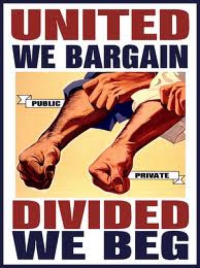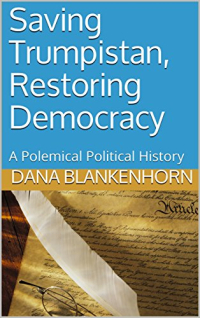
It turns out I was writing an economics book.
I learned this while reading a biography of the late Jane Jacobs, best known for her fight against the “urban renewal” of Robert Moses. After that fight Jacobs moved to Toronto, becoming one of Canada’s most beloved intellectuals, and there she wrote an economics history book, Cities and the Wealth of Nations.
In this book Jacobs identified cities, rather than farms, as the original source of wealth. It was cities that turned wheat into bread and beer. It is cities that transform everything.
True, as far as it goes. But how and why remained a mystery to Jacobs. The nature of money eluded her. It’s something my recent book explains by looking at American history and seeking what I first saw as political patterns in our national life, and later concluded were economic patterns.
The answers, in our time, strike at the nature of money, the nature of man, and why, even after Hurricanes Harvey and Irma, there remain people like John Stossel who continue to deny the reality of man-made climate change.
Wealth, it turns out, is entirely man-made. This is more controversial than it seems. Politicians have always believed wealth to be a product of holding land, or of exploiting it. They see history as great men moving lesser men around like pawns on a chessboard. Social historians, by contrast, focus on the real lives of ordinary people. These are important, but they are no more relevant to economic history than land is.
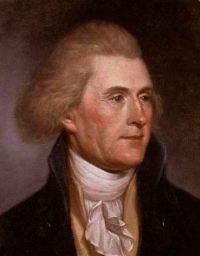
In America, this history has moved generationally. Each generation finds a new way to create wealth, and this new method drives the country forward, accumulating the largest share of it.
During the generation of the Founders, yeoman farmers and tradesmen created most of the wealth, as Jefferson observed. But even in his time, automation was changing the game. The cotton gin made the creation of wealth an industry, based on slavery, and it was this economic model that led southerners to believe they could win the Civil War.
But even as they sipped mint juleps on their front porches a new model was being born. The Civil War generation created wealth through railroads, which could move goods efficiently, and thus encouraged mass production. The infrastructure era that followed – phones and gas lines, electricity and roads – created the built environment around you. This was followed by the era of mass manufacturing, which lasted until it reached its productivity ceiling in the 1960s. We have just left a generation defined, once again, by resources, by holding and manipulating the price of oil to create more wealth than can be created by manufacturing productivity.
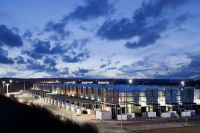
What drives computer technology forward is software, created by human capital. Trained minds, free to invent, harnessed by shared endeavor. Money coming out of the ground can’t compete. Even the oil industry is being redefined by a technology, by fracking, turning the energy shortage into a glut, and demonstrating that “the oilpatch” is everywhere. More important, oil is steadily being replaced by technology, in the form of renewable fuels, efficiency most of all.
The problem is that our leaders, and almost half our people, don’t accept this change. More important, they don’t accept what this change implies, the fact that man defines the world and the human mind can redefine it.
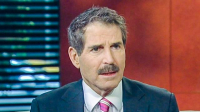
This very concept is a threat to men like Stossel. It seems to threaten the authority of all religious figures. All their holy books, and the stories they have told us for millennia, seem to be falling to science textbooks. Thus, they have allied themselves with industries that see money as coming from the ground, and who thus see wars of conquest as meaningful, because they take resources from perceived enemies.
This is a belief shared by Osama bin Laden and George W. Bush, across the gulf of the Saudi-Texas alliance, the most powerful economic force of the late 20th century. But even in their time history was putting the lie to this alliance.
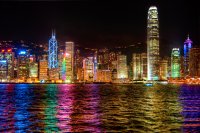
Free minds will create the most human capital. Chained minds can’t compete. Chinese minds aren’t chained, but bound in a polity where freedom is a good. Jack Ma is free. His employees are not.
Global warming is caused by this conflict in economic thinking. Those who see wealth as something that comes out of the ground, under the control of a beneficent God, stand against those who see wealth as something that is man-made, and this world as something man can make and re-make, now, as a heaven or hell.
We have both heaven and hell here on Earth. Global warming can also turn one into the other at a stroke. But to state that fact is blasphemy, for those who assume that something other than man drives man’s fate.
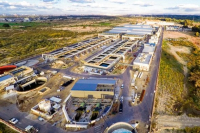
If we can deform our Earth, we can reform it. Take away the Sahara with desalinization and the force that fuels hurricanes disappears. Replace burning things with harvesting the energy around us, with solar panels, with wind turbines, and the global fever will break, at which time we will face the even more exquisite choice of just what kind of climate we wish to build for ourselves, and what we might do to, and for, other planets.
I choose to believe that my grandchildren will live in a world of such choices, when the current crisis, and my generation, are dead and buried. But that is just my choice in belief, to believe in the better angels of our nature.
The struggle has been joined, and as in past struggles – the Civil War, the Progressive Era, and World War II – the result is at this writing uncertain.


